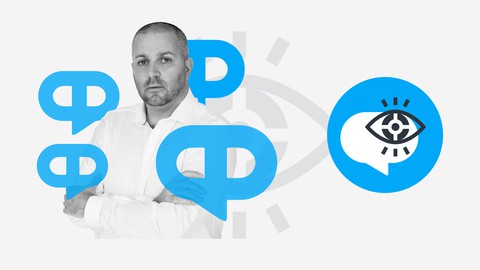howardshouse
Full Member
- Joined
- Jul 7, 2020
- Messages
- 12
- Reaction score
- 3
Folks, I'm trying to gauge whether to get a Masters of Couples & Family Therapy first — something I’m certain I’d love, but wouldn't provide as broad opportunities down the road — or whether to go directly for a PhD in Clinical Psychology. Your insights would be really appreciated.
My interest in a psychology career developed post-understand. My Bachelors was in Women's and Gender Studies and Political Science. I did very well in school, 3.95 GPA, never took the GRE. I currently work as a certified life coach (my niche is codependency recovery) and have been successfully self-employed for about three years. I’ve worked with over 100 clients one-on-one. It’s rewarding work but I’m aware that 1) the field is filled with “coaches” who are not certified and have little to no experience, 2) various modalities in which we were trained are not science-supported, and 3) coaching isn’t psychology, and it’s psychology that excites me.
I have little (honestly, no) quantitative research experience. My undergrad was social science-heavy. If I were to apply for a PhD, I think I'd need to get a volunteer RA role in a lab beforehand to make sure I actually like research. (Maybe take a psych stats course at a local university, too?)
Bottom line: Here are my options, as I see them.
My ideal future career involves a combination of private practice, testing, research, and education (though not in academia — more like workshops). I don't want my lack of quantitative experience to dissuade me from pursuing my dream career.
Do you have any advice for insight for me? Also, if I sound horribly naive or in need of some sense-talking, give it to me straight — I can take it!
PS: I’ve spent a great deal of time on this forum over the past few weeks and I’m grateful to all who donate their time, energy, and emotional resources here.
My interest in a psychology career developed post-understand. My Bachelors was in Women's and Gender Studies and Political Science. I did very well in school, 3.95 GPA, never took the GRE. I currently work as a certified life coach (my niche is codependency recovery) and have been successfully self-employed for about three years. I’ve worked with over 100 clients one-on-one. It’s rewarding work but I’m aware that 1) the field is filled with “coaches” who are not certified and have little to no experience, 2) various modalities in which we were trained are not science-supported, and 3) coaching isn’t psychology, and it’s psychology that excites me.
I have little (honestly, no) quantitative research experience. My undergrad was social science-heavy. If I were to apply for a PhD, I think I'd need to get a volunteer RA role in a lab beforehand to make sure I actually like research. (Maybe take a psych stats course at a local university, too?)
Bottom line: Here are my options, as I see them.
- Get Masters in Couples & Family Therapy. Get quantitative experience and coursework. Spend $70K, emerge with debt. Realize I definitely don't want to do PhD/research. Live happily ever after.
- Get Masters in Couples & Family Therapy. Get quantitative experience and coursework. Spend $70K, emerge with debt. Realize I REALLY want to get my PhD because, as I predicted, I want to do research and broaden the scope of my field. But now I'm $70K in debt and I'm terrified to go into MORE debt and I also just wasted 2 years of my life getting a Masters degree — a degree I'd get in the course of getting my PhD. Sad and broke.
- Skip the Masters, instead apply for PhD programs this winter because why not. Probably don't get in. Spend my winter and following year preparing for PhD applications. Feel bummed to spend a year working & not learning in an academic setting.
- Skip the Masters, get an RA volunteer position ASAP. Take psych stats at a local university. Apply for PhD programs next year or the following.
My ideal future career involves a combination of private practice, testing, research, and education (though not in academia — more like workshops). I don't want my lack of quantitative experience to dissuade me from pursuing my dream career.
Do you have any advice for insight for me? Also, if I sound horribly naive or in need of some sense-talking, give it to me straight — I can take it!
PS: I’ve spent a great deal of time on this forum over the past few weeks and I’m grateful to all who donate their time, energy, and emotional resources here.

